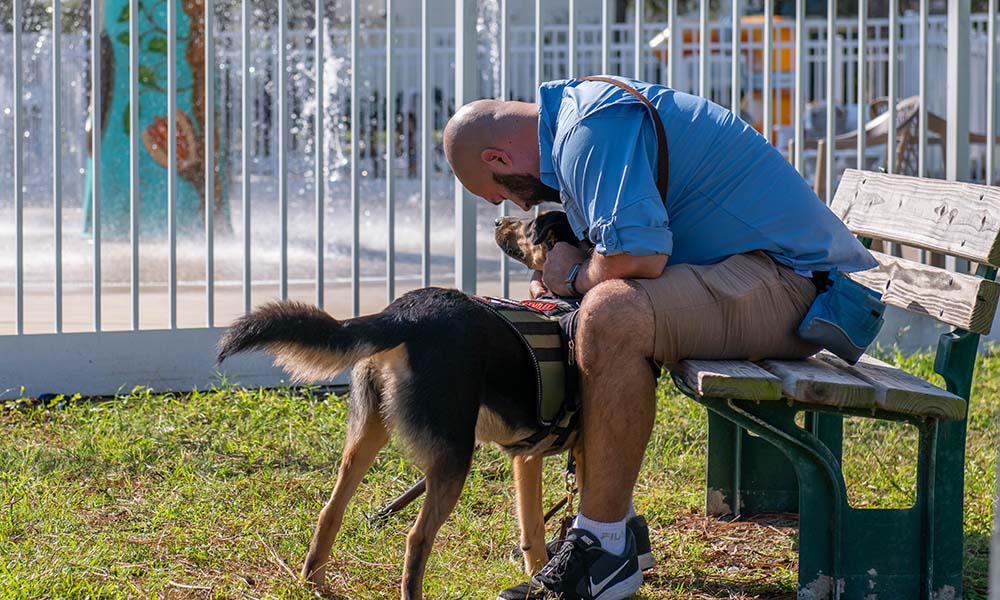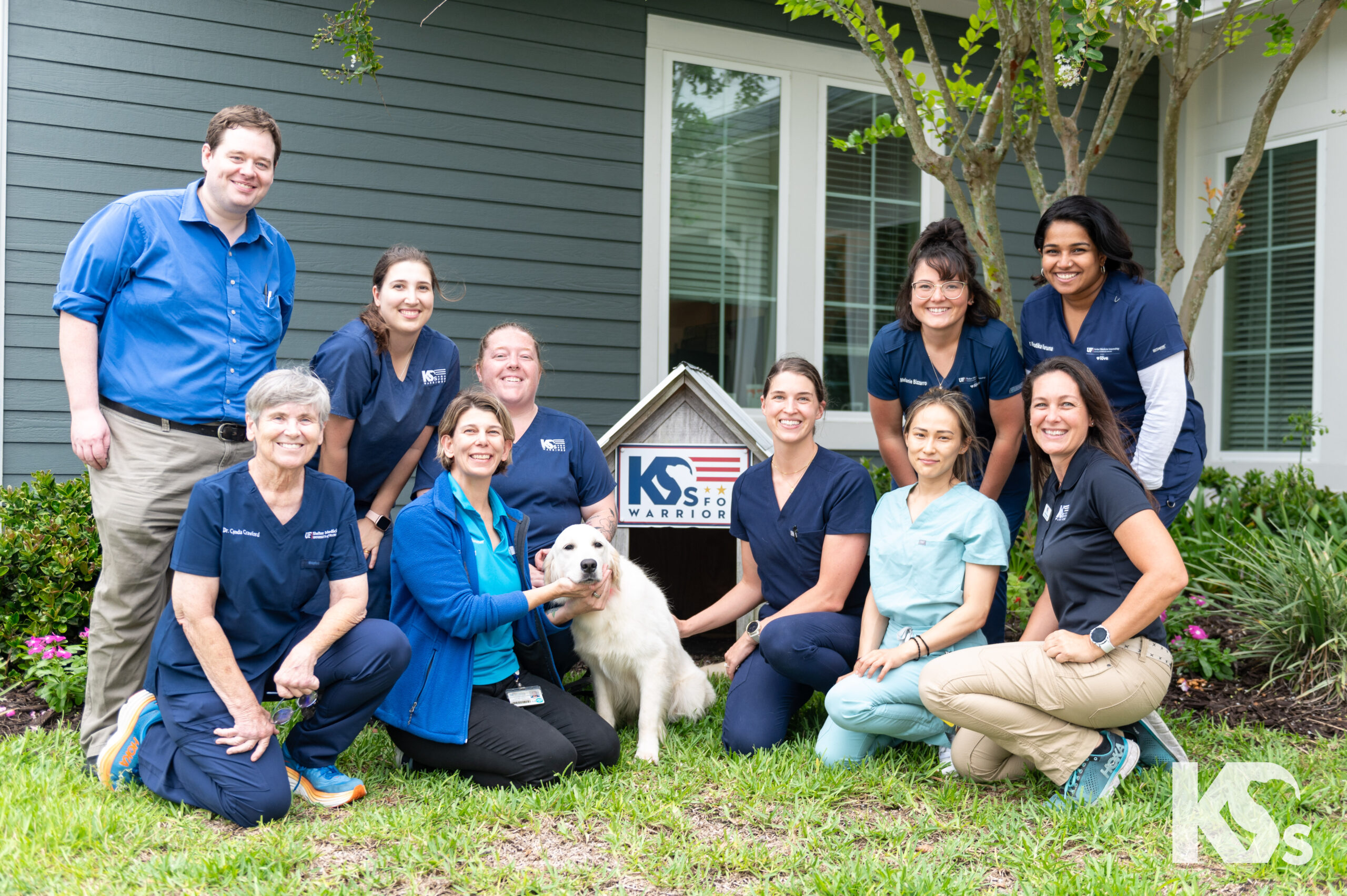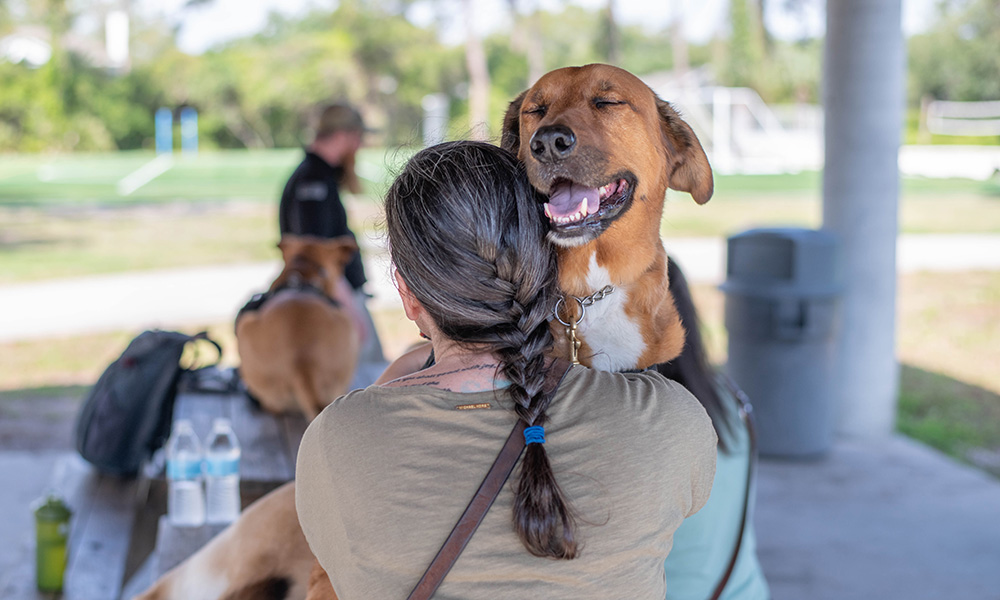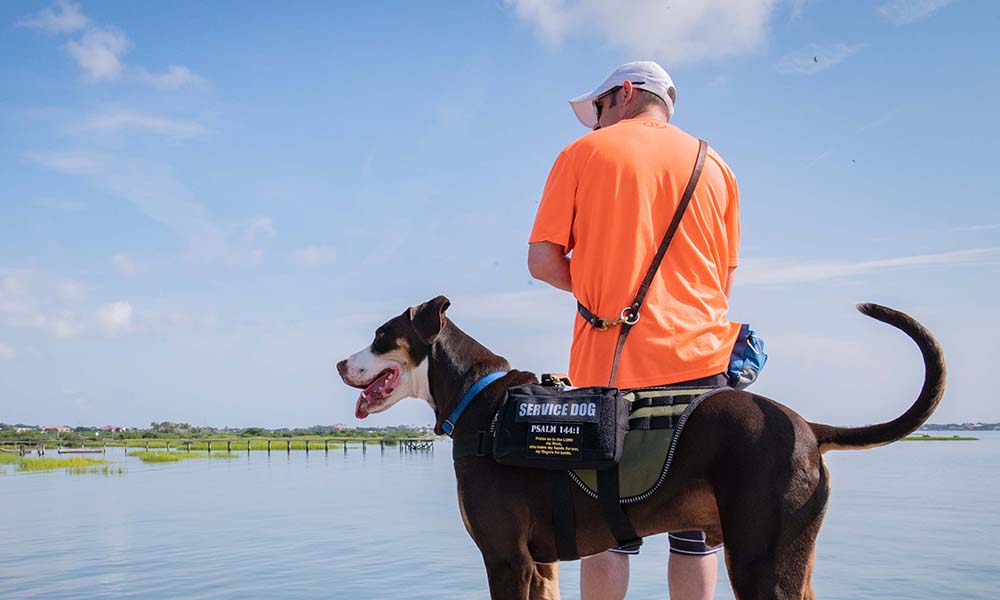When veterans show up at K9s For Warriors, they take around 10-15 prescriptions on average. This cocktail includes hard-hitting sleep aids, high-dosage anti-depressants, and potent anxiety medication. Many have spent months to years trying to tweak these doses to garner their full effect – to no avail. Despite the overwhelming number of milligrams taken each day, they continue to struggle with anxiety, flashbacks, and haunting nightmares.
Many cannot stomach upping their doses again – or worse – adding whole new prescription to the mix. That’s one of the reasons they apply to our service dog program. With a high prevalence of veterans abusing prescription medication in relation to their post-war afflictions, the need for alternative therapies is urgent. 30% of completed veteran suicides are preceded by alcohol or drug use, and an estimated 20% of high-risk behavior deaths are attributed to alcohol or drug overdose. For this reason, we need to be cautious about handing over medications with potential for abuse (Us National Library of Medicine, 2017).
But do service dogs really give veterans suffering from debilitating PTSD or traumatic brain injury (hereafter, TBI) the chance to decrease or even discontinue these medications altogether? And does the existence of service dogs discourage those who suffer from these issues from seeking other help?
Medication Increases
In the beginning, many veterans begin with low-doses of medication to control their PTSD. After a while, these medications lose their effect. For medications like opioids, this is called a tolerance. Tolerance to medications develops at a cellular level. When a drug like Oxycodone bonds to an opiate receptor, it triggers an enzyme called adenylate cyclase. This enzyme arranges several chemicals in the cells and stimulates it to fire impulses (National Institute of Drug Abuse, 2007).
Eventually, the cell adapts and begins to resist the firing of these impulses, lessening the effect of the medication. In response to this tolerance, medication doses can be increased so the patient will still receive the initial effect of the drug. Or, another drug will be added in conjunction to the original prescription. It’s easy for this cycle to spiral out of control and result in large doses of medication.
For anti-depressants, which are the recommended first-line drug treatment for PTSD, there is another issue to be wary of (US National Library of Medicine, 2012). Tachyphylaxis is the official term used to describe instances where previously well-performing drugs cease to work for the patient. It is still unknown what causes this, but it creates treatment complications for those whose PTSD is severe and can result in suicidal thoughts when uncontrolled. Because veterans who are diagnosed with PTSD are four times more likely to engage in suicidal ideation than non-PTSD veterans, it is absolutely vital that their symptoms be effectively treated at all times (Journal of Traumatic Stress, 2009).
The rising tier of milligrams and medications is overwhelming to many servicemen who long for an alternative way to improve their lives.
Gaining Freedom From Side Effects
Many drugs used to control PTSD, TBI, and MST have a wide range of unpleasant side-effects. These side-effects can interfere with daily life and result in the need for additional prescriptions. Nausea, constipation, fatigue, weight gain, impaired memory or judgment, and insomnia are only a few complaints heard by clinicians that prescribe these medications. Each classification of drug can come with its own unpalatable reactions. PTSD itself can cause irritability and insomnia, which can be exacerbated by certain medications.
SSRIs (Selective Serotonin Reuptake Inhibitors) or anti-depressants help many people, but they are also controversial and arguably more dangerous for young adults 18-25, which is the common age of deployment in military-age servicemen and women (Council on Foreign Relations, 2018). It is feared that it can result in increase or worsening of suicidal thoughts in some patients who are particularly vulnerable.
Similarly, there is fear that some medications, especially SSRIs, benzodiazepines, and stimulants can mimic the symptoms of PTSD and TBI (which are commonly intertwined in the patient) making the condition of the sufferer worse (Veteran’s Defense Project, 2014).
Being able to control the symptoms of PTSD without medications frees veterans from the exhaustive lists of warnings on each drug label.
92% of veterans who undertake K9s for Warriors service dog training program reduce or eliminate these medications altogether.
A study done by Dr. O’Haire at Purdue University shows clearly that service dogs help alleviate some of the symptoms of PTSD in participants of K9s For Warriors program – but this was in conjunction with medication. There has also been concern over whether Service Dogs essentially ‘take the place of’ medications and whether their presence in a veteran’s life will stop them from receiving other modalities of treatment.
PTSD is so prevalent in our military and veteran populations that the Pentagon considered expanding the definition of “qualifying wounds” for a Purple Heart to include PTSD. Ultimately, they decided against this change, as it is not considered a ‘physical wound’. This decision decidedly adds to the stigma of invisible illnesses in our veteran communities. As they weighed the change, our military men and women return to civilian life with handicaps that sometimes leave them prisoners in their own homes.
It’s imperative that we have options for our service men and women that gives them an alternative to pharmacotherapy. Every warrior is different, every story is unique, so every success story will vary. We need every possible methodology of treatment available to this venerable group. This is why obtaining grants and funding is so important for accredited Service Dog programs. There are thousands of veterans who could benefit from programs like the one we run at K9s For Warriors. Breaking down the barriers for treatment is essential to combat the heartbreaking truth about veteran suicide in the United States.







